Apple ResearchKit: Can the iPhone really help cure diseases?
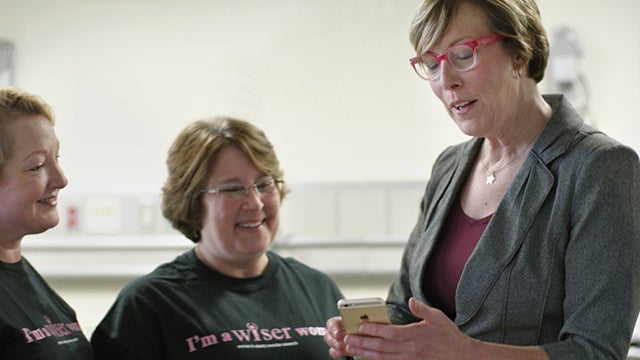
Forget Apple Watch and the new MacBook, the biggest news from Apple’s Spring Forward event was ResearchKit
“Hold on, is Apple actually saying iPhones are going to help cure cancer?” I said to myself.
While the world sat in front of Macs and iPhones waiting to hear more about the “most advanced timepiece ever created,” Tim Cook announced ResearchKit. It’s a much bigger deal than any gold MacBook or smartwatch.
This is Apple saying that it’s going to create an open platform where researchers and doctors can make apps that are downloadable by iPhone users, so medical research or studies can be conducted on an enormous scale.
Could this really transform medicine forever? My initial reaction was, like most no doubt, that this was overly ambitious. It’s one thing to revolutionise the music industry, but healthcare is so much bigger than that.
But now I’ve had a few days to let the announcement sink in, read about the ins and outs of ResearchKit and talk to people in the industry, I’m convinced that Apple could be on the cusp of something groundbreaking.
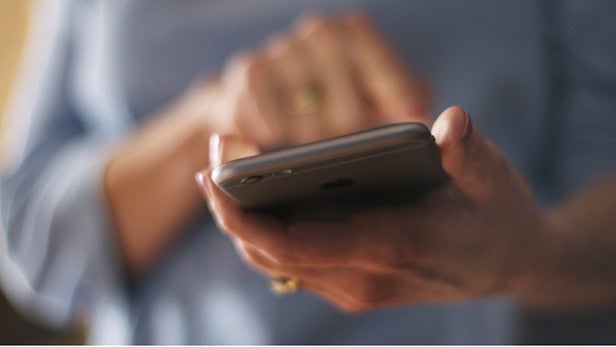
How does ResearchKit actually work?
In the same way WatchKit is a platform designed for developing Apple Watch apps, ResearchKit is a platform for producing apps that help collect meaningful research data. This aims to solve a huge problem for medical researchers – namely how to collect large volumes of research data at a reasonable cost.
This usually involves convincing willing participants to go to a clinic, fill out some forms, maybe perform a test or two and possibly monitor daily activity over a period of time. It can take months or years to get the kind of data researchers need this way, which is why creating apps is such an attractive idea. Apps will let researchers reach a much larger audience while reducing admin overheads.
These ResearchKit apps can also utilise the iPhone’s sensors, including the accelerometer, microphone and gyroscope, to perform what Apple calls Active Tasks. This could be touching the screen to monitor dexterity or spatial memory. It can even use distance data collected during a short walk. If you use iPhone-friendly accessories like blood-pressure monitors, these will be supported as well to add another layer of data.
Five ResearchKit apps already exist and are currently only available for US iPhone users to download. Produced in partnership with major universities and research teams, they aim to study such conditions as Parkinson’s Disease, Breast Cancer and Cardiovascular Disease.
Uncharacteristically, Apple is using an open-source platform, which goes against its usual closed approach. While that should make it easier to iron out bugs, this means pretty much anyone who wants to make an app, and knows how to, can. There will be guidelines to adhere to and Apple has already updated its terms in anticipation of ResearchKit being released to developers in April. It reads:
27.9 Apps conducting health-related human subject research must obtain consent from participants or, in the case of minors, their parent or guardian. Such consent must include the (a) nature, purpose, and duration of the research; (b) procedures, risks, and benefits to the participant; (c) information about confidentiality and handling of data (including any sharing with third parties); (d) a point of contact for participant questions; and (e) the withdrawal process.
Big data means big privacy questions
With big data comes big responsibility and it’s a responsibility that Apple is largely leaving to developers. Apple’s made it clear that it won’t see your data. That means the developers making the apps will be required to create secure connections between apps and servers where the data is collected. Who’s to say that data isn’t going to fall into the wrong hands or be sold to pharmaceutical companies? You only have to look back at the recent hacks of high-profile companies to be more than a little concerned about whether ResearchKit can keep your data protected.
This is a concern echoed by Professor Nathan Intrator, CEO of the Nuvo Group, a company that’s developed a wearable that can monitor a mother and its baby during pregnancy. Speaking at a panel at the Wearable Technology Show, discussing healthcare wearables, Professor Intrator said, “I think the regulation, which is really required in order to make sure that this will not fall into very bad hands, is going to be a nightmare.”
Raj Samani, EMEA CTO at Intel Security and Chief Innovation Office at the Cloud Security Alliance echoed those sentiments, telling us, “We have been doing some analysis on underground forums and the sale of stolen data recently. You are now seeing health-related data being targeted, and there’s a reason for that. Where credit card information can give you an immediate return on an investment, that’s perishable. What happens if your credit card gets scanned and someone takes money from your account? You’d contact the bank, they’d change the credit card number and you can carry on living your life. What happens if I manage to connect data about your medical conditions? You can’t change that.
“The reality is that we are moving to a place where the data that we have has enormous economic value not only to commercial organisations but to criminals as well.”
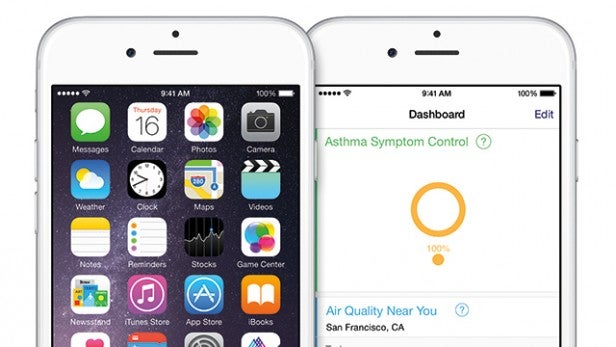
Freddie McMahon is a Director of Strategy and Innovation at Anomaly 42, a company that helps organisations make sense of big data. McMahon believes Apple’s regulation approach will work, though. “I think it can work far better than most will realise. One of things you can’t do is publish an app into the ecosystem without it being carefully vetted. So anything to do with health will inevitably have high levels of scrutiny. One of the things Apple will make sure is that people will follow the right protocol for getting permission from people to use that data.”
McMahon added, “If it transpires someone has bypassed the quality control that Apple imposes on all of its apps, manipulated it for bad reasons and gets caught, Apple reserves the right to remove those apps from the marketplace.
Current privacy policies and regulations in place for the medical industry don’t cover apps or the ResearchKit toolkit in the same way that medical devices are covered. Apple has reportedly met with the Federal Trade Commission in a bid to ensure customer information is protected and sharing collected data to third parties.
Samani, however, believes it’s not just down to Apple to make sure the platform is secure. “I think addressing the privacy and regulation is not something one organisation can do alone. The reality is that it’s not only industry or government with regards to setting the regulatory framework. Even patients as well need to ensure we have that basic level of trust.”
Samani added, “Apple provide the platform. Are they a company that provide audits? No. Somebody develops an app, so is it really fair to consider the company that creates the platform to test everything out? No. Companies like Google and Apple can provide you with the platform and get the requisite level of transparency. The risks associated with healthcare go well beyond simply what the app does.
“What about the storage of that data or the sharing of that data? When is the last time you’ve ever read a terms of service?
“We live in a world where privacy is buried in terms of service and they say its explicit consent and they told you about it, but there’s a difference between explicit consent and informed consent.”
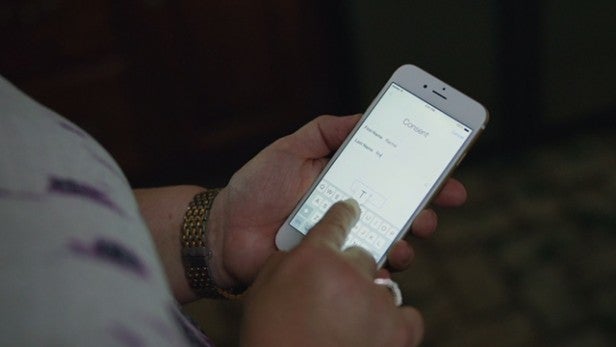
Beyond data privacy, there’s another big data question: how valuable is that data actually going to be? Developers are going to have to address potential issues with the accuracy of data, whether forms are correctly presented, even whether participants are who they say they are.
McMahon agrees with that point, saying, “The data that ResearchKit developers can pick up from the apps in isolation is not good enough. It needs to be linked up with other data from other organisations.”
Another issue is whether taking data from iPhone users will truly provide an accurate picture of people suffering from a particular illness or disease, across all social demographics. It’s a fair to say that you have to have big pockets to own an iPhone these days, and that applies even more if the apps are only optimised for the most recent-generation iPhone models.
Deepak Prakash, Global Director of Marketing of Vancive Medical Technologies, believes this is a big problem for ResearchKit. Attending the Wearable Technology Show in London to showcase a disposable wearable for healthcare professonals, Prakash commented, “How do you, more importantly, tell a patient what is good data and what is bad data? How do you tell a patient we prefer putting the data into the hands of the professionals? Do you as a user have the sophistication to understand the data?”
ResearchKit: The industry verdict
Fortunately, just one day after Apple’s announcement, the Wearable Technology Show was taking place in London. I quizzed several wearable healthcare start-ups and high-profile wearable technology manufacturers about the potential of ResearchKit and its implications for medical research.
Liz Dickinson, CEO of MIO, the company behind the wrist-based heart-rate monitor technology found inside sports watches such as the Adidas MiCoach Run thinks ResearchKit is going to be huge for the industry:
“To me ResearchKit’s going to drive innovation in the whole category. The only use case that’s driving wearables, which is frustrating for everybody, is fitness. So how are you going to get better innovation in the industry unless you give that power to others to come up with those use cases.
Speaking in a panel discussion on wearables in healthcare, Marco Peluso, CEO of Qardio a wearable company that’s integrated with Apple Health, echoed Dickinson’s sentiments: “I think it’s going to have an impact on the industry, but it’s also going to have an impact on patients on healthcare professionals in terms of opportunities and speeding up research. HealthKit and ResearchKit potentially represent two platforms to bring together multiple sensors and the kind of analysis that would normally be very expensive.”
Related: Quell is the first wearable for pain relief
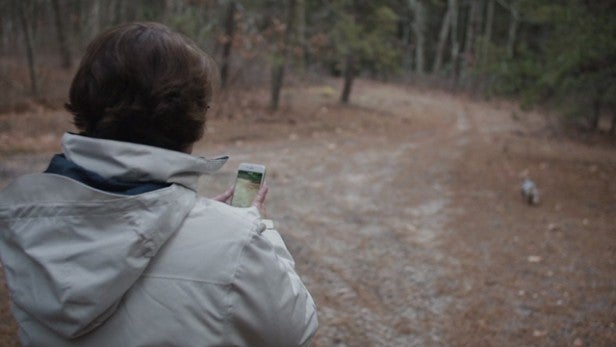
Deepak Prakash of Vancive Medical Technologies believes Apple has a monumental challenge on its hands. “It’s Apple, so in one sense they are able to shape things. At the end of the day you are dealing with health, patient care, things with a lot of inertia. It won’t change overnight. They did a lot of good things on the music side. It’s not the same. They are going to struggle with this.”
Joni Kettunen is CEO for FirstBeat, a company that provides fitness and analytical wearable technology for professional sports teams, and works with Garmin and Samsung to build the technology into their wearables. He feels Apple will struggle to see instant results.
“They can’t change the law of physics,” says Kettunen. “I would have rather one person developing something than 10,000 people. There’s a lot to learn. It takes some time and you can’t do the impossible. It would be unbelievable to see Apple cracking something that has taken some years to do. Yes, the phone’s sensors have developed a lot, but there’ll be questions about accuracy.”
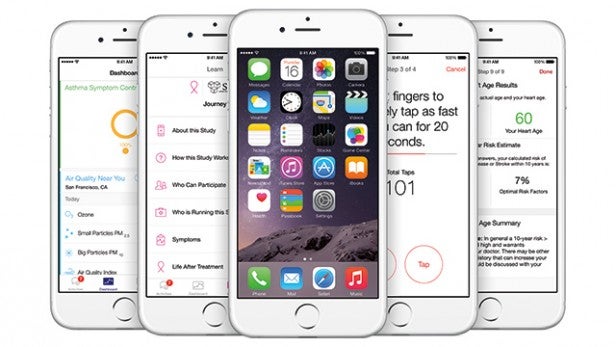
Can ResearchKit really transform medical research?
Within days of the announcement, researchers at Stanford University said it had 11,000 people sign up for a cardiovascular study. To get that amount of people to sign up normally takes a year spread across 50 medical centres, according to the university. That happened in less than 24 hours of the app going live. That’s incredible.
While this is obviously great news for researchers, Apple still needs to address the major issues of privacy and regulation. It could end up being an ethical minefield if it’s not dealt with swiftly and properly.
Raj Samani, Intel Security’s CTO, says, “We’ve got to have this balance between strong security, privacy and regulatory environments. We need the safety and trust in medical systems. But equally not making it so onerous that we inhibit innovation, because ResearchKit is innovative.”
Professor Nathan Intrator, CEO of the Nuvo Group, a company responsible for a wearable that can monitor pregnancy, sums up perfectly what ResearchKit could mean for the healthcare industry:
“I think people trade off between privacy and comfortability. Take Gmail, for example. You are willing to put all your thoughts, all connections and emails with one company that can read it all. We are all comfortable with it. I suspect in the medical field, that is going to happen. If I have to go to the clinic, I have to take half a day off from work. I have to go to the clinic, wait there, be diagnosed – as opposed to doing it at home, measuring it continuously, having peace of mind and giving up some privacy? I think many will do that.”
Do you think ResearchKit will revolutionise medical research? Let us know in the comments section below.


